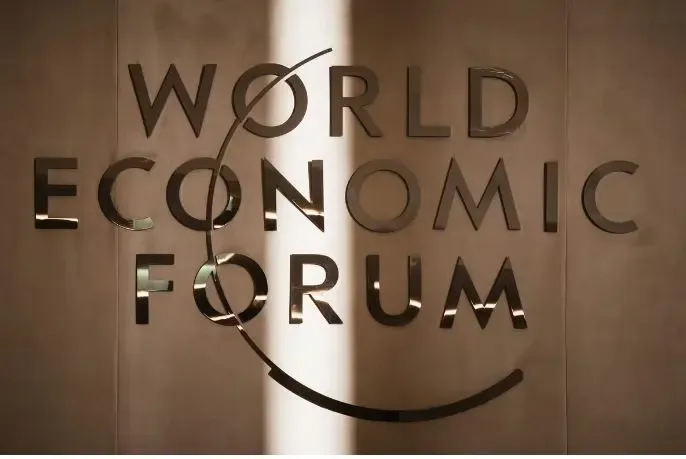Global Economy Faces $5.7 Trillion Risk Due to Geo-Economic Fragmentation: WEF

Synopsis
Key Takeaways
- Geo-economic fragmentation poses significant risks to global trade.
- Potential costs to the global economy could reach $5.7 trillion.
- Inflation could spike by more than 5 percent in extreme scenarios.
- Consequences may surpass those of the 2008 financial crisis.
- Policymakers are urged to promote sustainable development.
Davos, Jan 23 (NationPress) A recent report by the World Economic Forum reveals alarming economic threats posed by the escalating geo-economic fragmentation as nations increasingly leverage the global financial and trading frameworks to pursue geopolitical aims via sanctions, industrial policies, and other economic strategies.
The Navigating Global Financial System Fragmentation report predicts that the economic fallout from statecraft policies could lead to losses for the global economy ranging between $0.6 trillion and $5.7 trillion, potentially accounting for up to 5 percent of global GDP. This decline is attributed to diminished trade, hindered cross-border capital flows, and lost economic efficiencies.
Furthermore, in a scenario of extreme fragmentation, global inflation could surge by over 5 percent.
This report, produced in collaboration with Oliver Wyman, indicates that the economic ramifications of escalating geo-economic fragmentation may exceed those caused by the 2008 financial crisis or the Covid-19 pandemic.
Countries are increasingly utilizing the financial system to further their geopolitical ambitions, as evidenced by a staggering 370 percent increase in sanctions since 2017, alongside subsidies, industrial policies, and discussions on the establishment of alternative financial frameworks. The report urges policymakers to implement economic statecraft that promotes cooperation, sustainable development, and resilience within the global economy.
Matthew Blake, Head of the World Economic Forum’s Centre for Financial and Monetary Systems, states, "The potential costs of fragmentation on the global economy are staggering. Leaders have a critical opportunity to protect the global financial system through principled approaches."
The ramifications of fragmentation on inflation and GDP growth are heavily influenced by the policies enacted by global leaders. Through a principled approach, policymakers can advance beneficial strategies for their economies and societies while alleviating unintended consequences on issues like the cost of living and GDP growth.
For instance, modeling trade relationships indicates that GDP growth could decline nearly 10 times more in a situation involving a complete decoupling of Eastern (i.e., China and Russia) and Western (i.e., the US and its allies) blocs compared to a lower fragmentation scenario where capital and trade flows are solely restricted in sensitive domains related to national security and competitiveness.
In a similar vein, inflation would be nearly nine times higher in this comparison, the report further noted.









